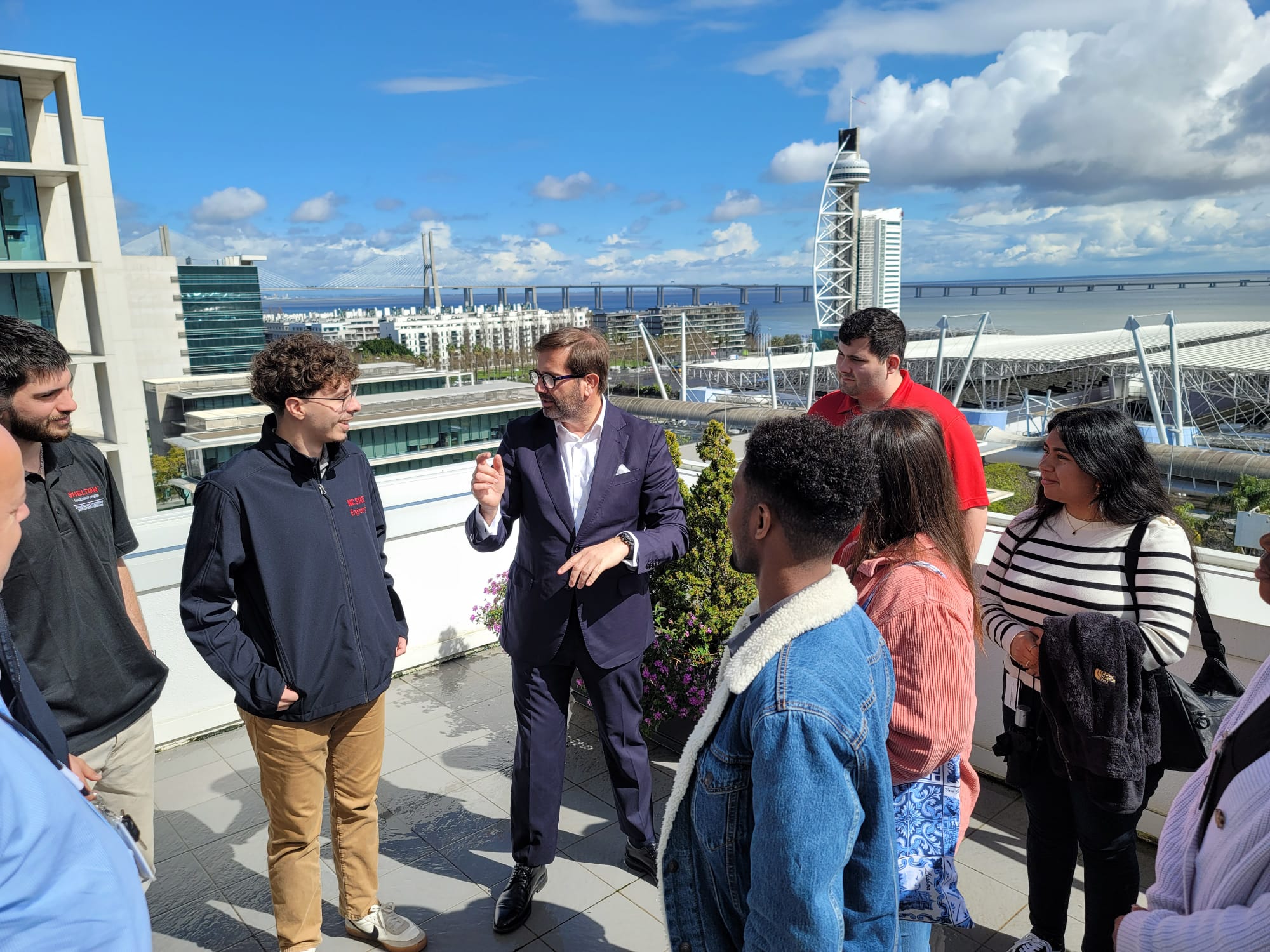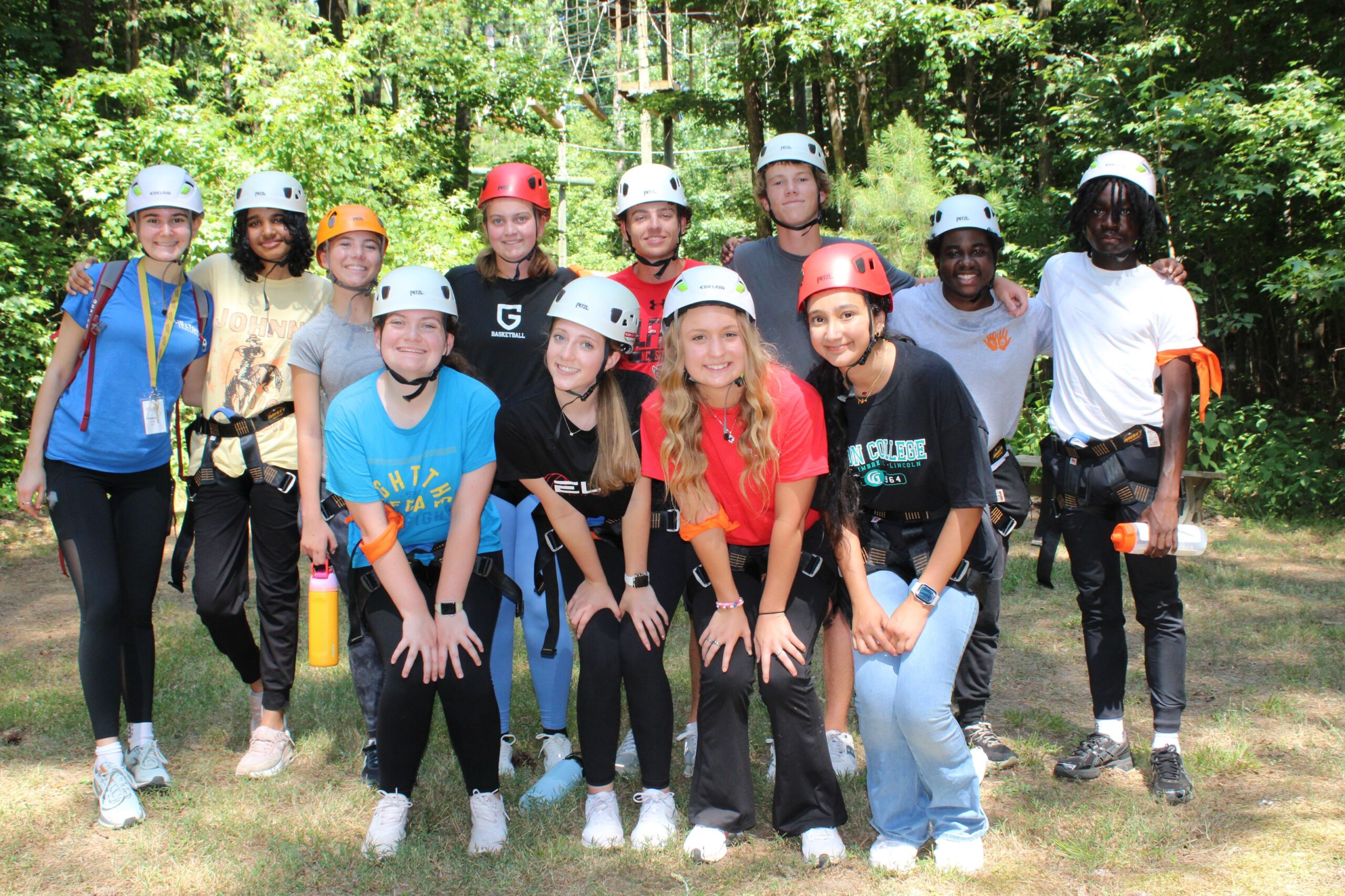Leveraging Virtual Reality for Leadership and Negotiation Skills: An Exploration of Power, Empathy, and Perspective
Authored By: Tiff Karalis-Noel
Co-Authors: Debbie Acker, Sammy Dellaria
In today’s world, where leadership increasingly values empathy and understanding, educational methods must adapt to bridge the gap between traditional pedagogy and the dynamic needs of modern interdisciplinary majors. Virtual Reality (VR) emerges as a cutting-edge solution, offering a unique avenue for experiential learning. By integrating VR into academic curriculums, we open a gateway to immersive education that enhances empathy, perspective-taking, and understanding of complex power dynamics.
To better understand organizational power dynamics and interpersonal relationships, the Shelton Leadership Center (SLC) is incorporating the use of VR for more immersive learning experiences, including within the curriculum of our SLC 350 Leadership and Negotiations course.
How does the VR experience work?
The VR experience shows an interaction between a supervisor and employee that have had some differences in opinion about job responsibilities and expectations. The supervisor has asked the employee for a separate meeting to discuss the concerns, which is the interaction viewed during the VR experience. VR participants are shown the third person view of the interaction and then the first person viewpoint of both the supervisor and employee. After each scenario, participants are able to reflect on the behaviors, assumptions, and perspectives of the interaction.
How Can Virtual Environments Decode Power Dynamics?
While specific courses like SLC 350 Leadership and Negotiations showcase the transformative power of VR in education, the broader application of VR in various academic curricula highlights its utility in enhancing empathy, perspective-taking, and understanding of power dynamics.
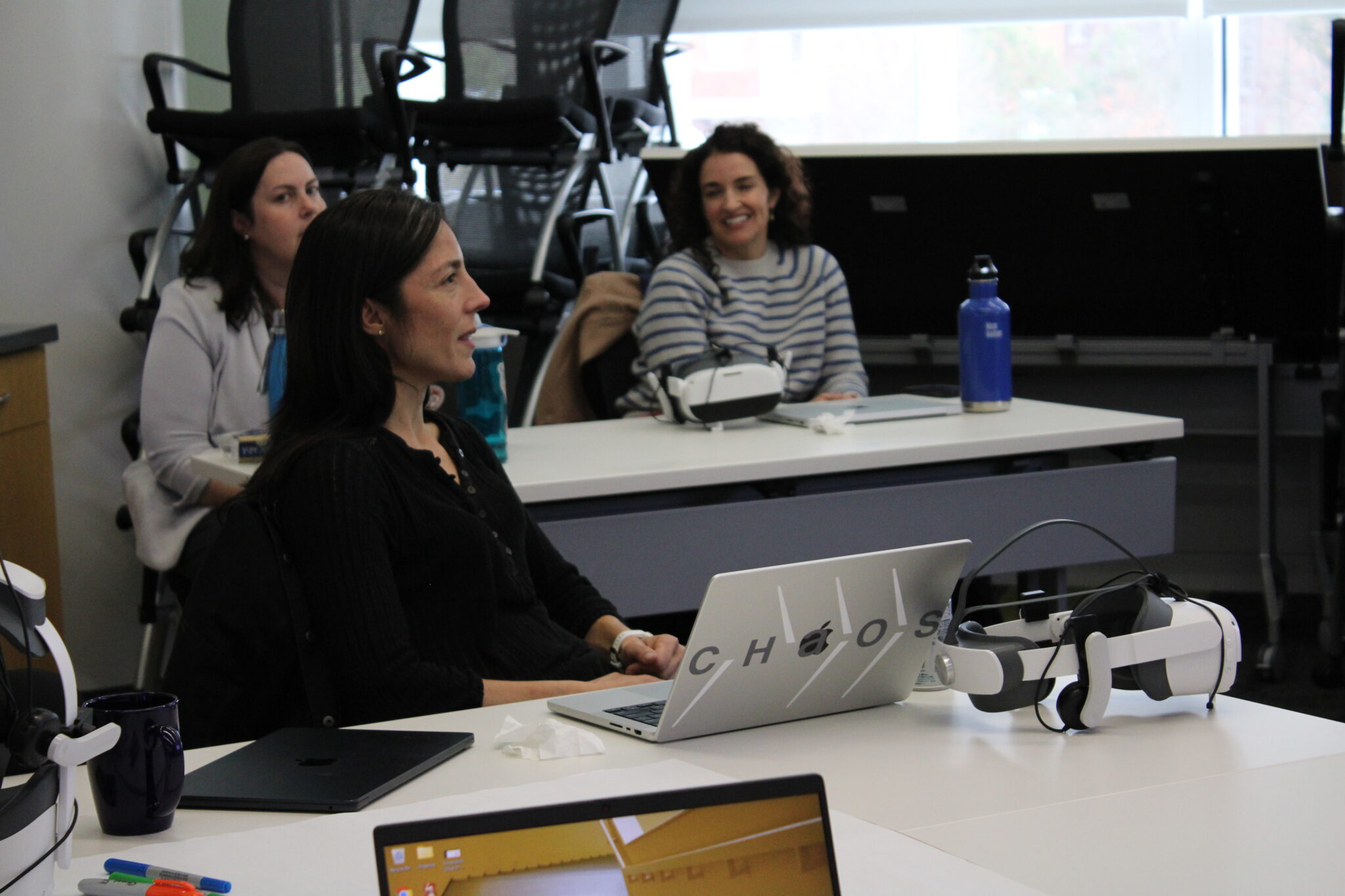
For example, participants immerse themselves in a virtual corporate negotiation between an experienced manager and a novice employee, highlighting an intergenerational dialogue where the novice, eager to share innovative ideas, and the experienced manager, who perceives these actions as overstepping, clash due to a history of poor communication. Equipped with VR goggles in a classroom or lab setting, participants engage in immersive experiences that broaden their understanding of authority, communication styles, and power dynamics in various contexts.
In addition to the VR setting offering a safe space for dissecting these interactions, it also challenges participants to confront their own biases. It prompts them to consider: Can anyone ever be a truly impartial observer? And how do personal beliefs shape our perspectives on power and authority? In this immersive environment, students are not merely spectators but active participants, asked to navigate through and reflect on these scenarios from multiple perspectives, including the nuanced dynamics of intergenerational communication and the complexities arising from misinterpretations and mismatched expectations.
What Insights Into Managerial Decision-Making Can VR Provide?
As the VR experience progresses, participants across disciplines examine the intricate decision-making processes of managers. They come to understand that these decisions are influenced by personal histories, organizational culture, and strategic visions. Such insights encourage participants to question the factors shaping managerial choices, and how their roles within an organization influence negotiation strategies and interpersonal dynamics.
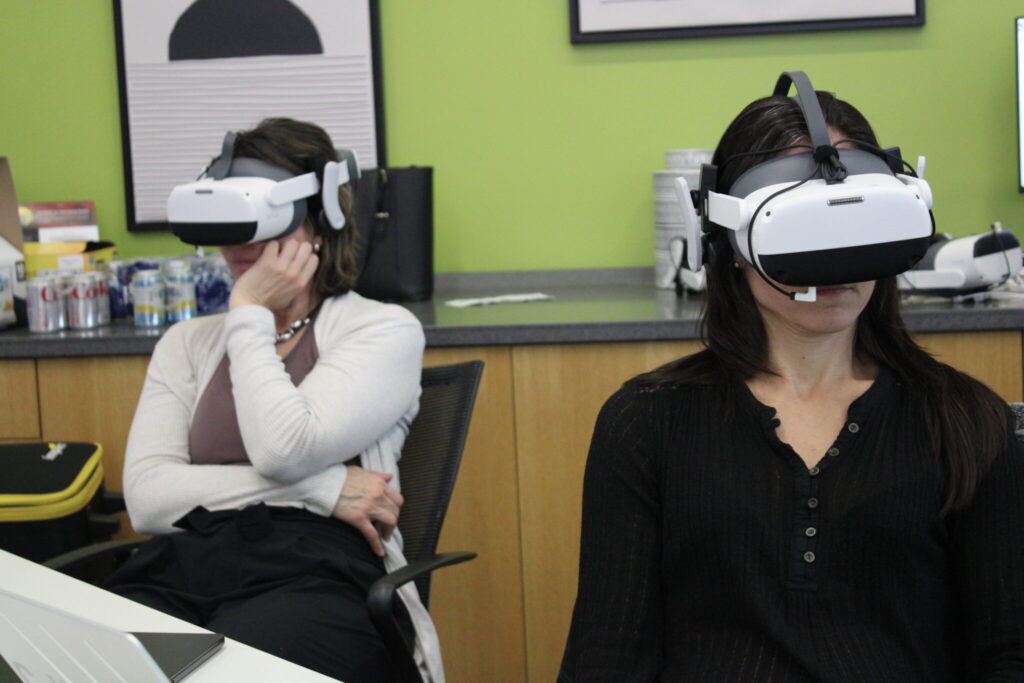
How Does VR Illuminate the Perspective of the Younger Employee?
The VR scenario also presents the perspective of the younger employee, illuminating their aspirations, uncertainties, and perception of hierarchies. Participants are prompted to consider how newcomers navigate the challenges of their roles, and how they reconcile traditional power structures with progressive organizational values.
By analyzing both managerial and entry-level experiences, participants achieve a well-rounded view of organizational dynamics, spurring reflection on how this insight can foster more empathetic leadership.
Can Virtual Experiences Translate to Real-World Leadership Skills?
The application of VR in courses and training isn’t purely academic; rather, it’s a strategic effort to leverage diverse insights for understanding power dynamics. The experience raises a pivotal question: Can VR not only enhance our understanding of workplace structures but also translate into actionable leadership skills?
VR’s immersive nature allows participants to experiment with theories and techniques in a low-risk environment. Beyond just immersion, it also encourages introspection, enabling them to internalize lessons in ways traditional methods might not achieve. VR thus emerges as both an educational tool and a practical training platform, preparing students and professionals for real-world leadership roles.
What Is the Future of Immersive Education?
Expanding the innovative approach of integrating VR into education and training, we can envision a future where VR becomes a staple in interdisciplinary curricula and professional development. As the professional world grows more complex, future leaders need tools that offer deeper insights. The intersection of technology and education can equip them to navigate and influence the intricate dynamics of their respective fields.
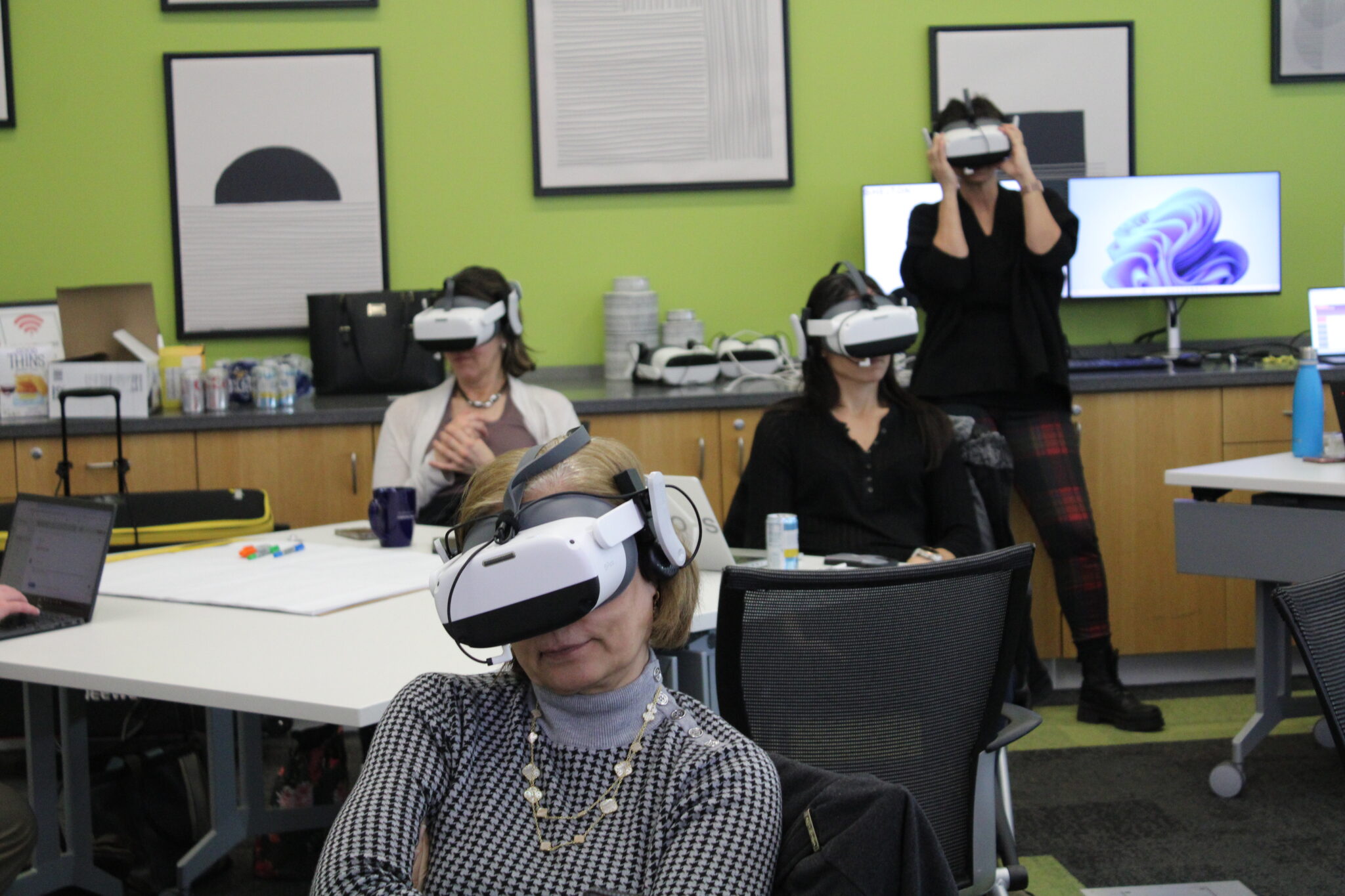
We stand at a promising crossroads in a rapidly evolving digital world. The question remains: Are we ready to adopt immersive methodologies that not only enrich our understanding but also enhance our capability to influence real-world scenarios? The future of education and training is not just about knowledge acquisition but immersive reflection and growth. A VR-integrated pedagogical model epitomizes this evolution, ushering in a new era where learning means truly experiencing and internalizing lessons. Expanding this innovative approach beyond courses like SLC 350, we can envision a future where VR becomes a staple in interdisciplinary education, transforming how we prepare students for the complexities of leadership and negotiation in any field.
Moving the Virtual Reality Experience Forward
VR is already making an impact beyond specialized courses, finding its place in teaching personal and organizational values, culture within organizations, communication, conflict management, negotiation, global competencies, and strengths assessment.
SLC has applied the virtual reality learning experience to other learning environments outside of the classroom, including professional development trainings on NC State’s campus and beyond. If you are interested in having the VR training experience facilitated for your team, please reach out to our center Director Dr. Debbie Acker at dlreno@ncsu.edu for more information.
- Categories:
